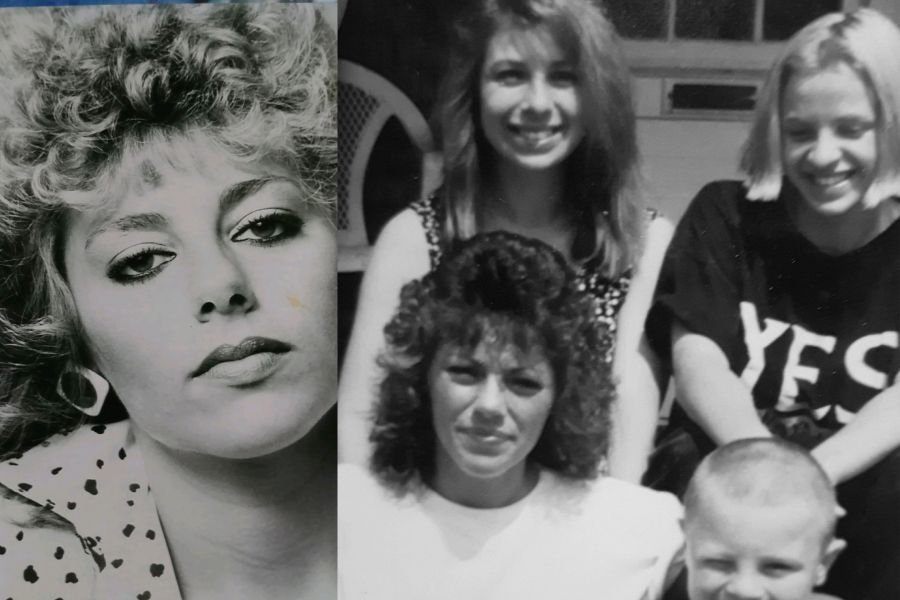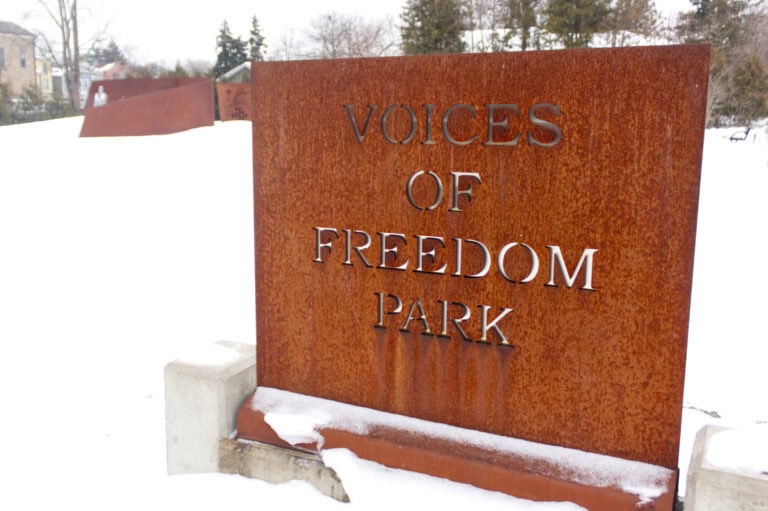Emanuella Chiaramida died in 2008 after hanging herself in the Greater Niagara General Hospital while checked in for being suicidal.
Her sister Michelle Conforti can’t shake the memory of losing yet another sibling. Almost a decade later, the way it played out is still vivid in her mind.
She had just been there for visitation. The two were laughing and joking around. It was as if something was wrong. They had the wrong patient, she thought. It couldn’t be her sister. She was just there.
But there was no mistake.
Six hours after leaving the hospital for visitation, Conforti received a phone call saying her sister had hung herself and was on life support.
Chiaramida was 43-years-old.
The two sisters grew up in Toronto and moved to Niagara Falls in 1984 with their family.
The family suffered a serious loss in January of 1982, when a house fire claimed the lives of three family members: their 76-year-old grandmother and two of their siblings, a brother and a sister, just two and five-years-old, respectively.
Chiaramida was 16 when it happened. Conforti was nine.
Conforti said it hit her sister the hardest.
“I think from that point on it triggered depression in her.”
She said after the fire she tried to slice the back of her heels.
Chiaramida had already started getting into drugs when the fire happened. She was sniffing glue and smoking pot and hash, and from there, Conforti said her sister slipped down a worse path, leading into cocaine and opiate addiction on top of depression.
She said she would often talk about suicide and overdosed a couple of times, ending up on the methadone program to help overcome her addictions.
Struggles riddled Chiaramida’s life. On top of addiction and depression, her love life wasn’t exactly stable.
She was married at one time, which is where she got the last name Chiaramida. But the marriage fell apart and she ended up in another relationship as common-law.
Her common-law partner ended up finding out about another relationship, which made everything worse, Conforti said.
On July 22 of 2008, Chiaramida took a bunch of pills and then started driving. She was found passed out in her car, which had gone into a ditch.
That’s when she was checked into a Welland hospital.
Conforti said the Welland hospital “watched her right across the desk.”
Chiaramida was transferred to the GNGH in Niagara Falls on July 23, and that’s when things took a change — just ten hours after arriving.
“I remember in visiting hours we were joking, having times, it was all fine,” recalls her sister.
“My last words to her were — she wanted to come with me — I said ‘Ema stay here, you’re safe here.’ … For years I’ve had to deal with that now; telling her that she was safe there.”
Sometime between that visit and when she received the call from the hospital, Chiaramida tied her pyjamas bottoms up tight, wrapped them around her neck, secured them to the back of the toilet pipe in her room and hung herself. She was found strangled on her knees.
Chiaramida’s family met at the hospital the morning after. She was on life support and the doctors said there was little chance she would recover. Her eyes were white and rolled back, though the doctors said if her pupils came back down she might make it. They did come down, but weren’t moving at all. She was brain dead.
Conforti couldn’t stand being so helpless to save her sister.
“I remember saying, ‘is there any part of my brain that you can use?’”
The family kept Chiaramida on life-support for three days before removing her from oxygen.
Chiaramida lived for another 16 days after that.
Conforti stayed with her sister during much of that time, hoping for a miracle that never came.
She said her sister’s body would go into shakes, and that she couldn’t help feeling like her body was in pain.
“Just to watch her body go through the suffering,” she said, her emotions high.
Conforti said she still to this day can’t understand how the hospital could let something like that happen.
“In a hospital you think you’re safe,” she said.
“They told me they were short staffed … They should have told me, I would have paid the $12.50 an hour to hire a security guard to watch her.”
Conforti tried to sue the hospital, but the lawsuit went nowhere and her lawyer told her nothing would amount of it.
Now, she says she blames the lack of mental health resources available to people like her sister.
Adding to everything, while Conforti was trying to sue the hospital she met a Fort Erie man whose brother had hung himself in the GNGH just three months before her sister. He had hung himself off the hooks on the back of the doors.
“They thought since they took the hooks off the back of the doors that ‘okay everything is fine.’”
She said she thinks somebody should have been talking to her sister, letting her vent.
“Somebody should have been there.”
“I believe when people are (suicidal) you need to talk to them. You don’t leave them alone.”
She said her sister just had time to think “over and over and over” on how to do something.
“You know, you’re in a hospital for help. You don’t just ignore these people. They’re in a dark spot. They need to come out of the darkness. They need a friendly face, or just somebody to vent to. And she didn’t have that.”
“And then I lost my sister … My older sister.”
Conforti said it’s just this year that she’s really accepted that she’s gone.
“It’s been hard.”
She blames herself in a way, though she has sought help for that and is coming to terms with the loss.
“Now I’m sort of grateful I had that extra time with her.”
“She was beautiful but she never thought she was … she was so caring. It’s a shame.”
Though it won’t bring her sister back, Conforti hopes that telling her story will help bring about some change in the way mental health patients are handled.











